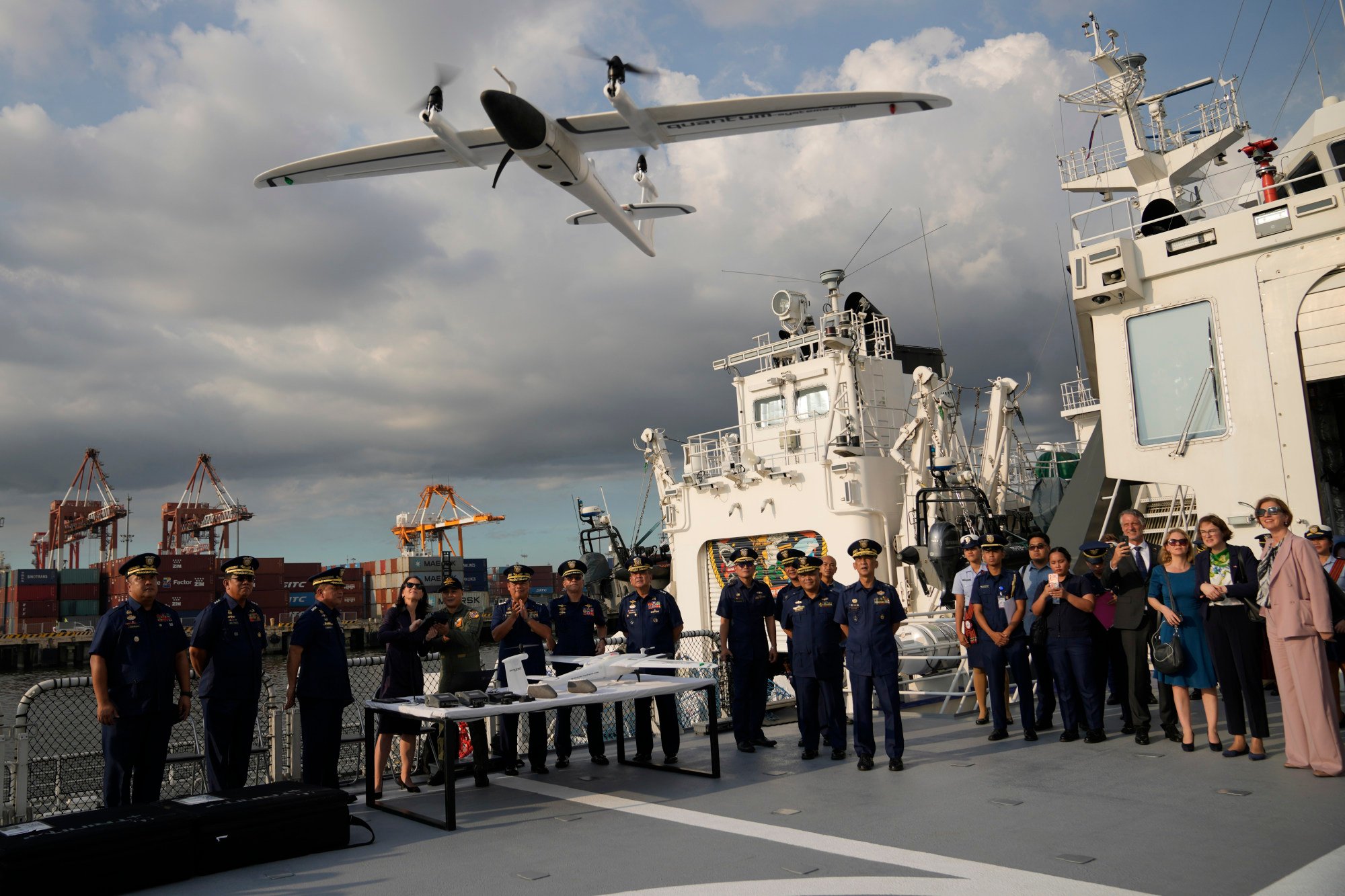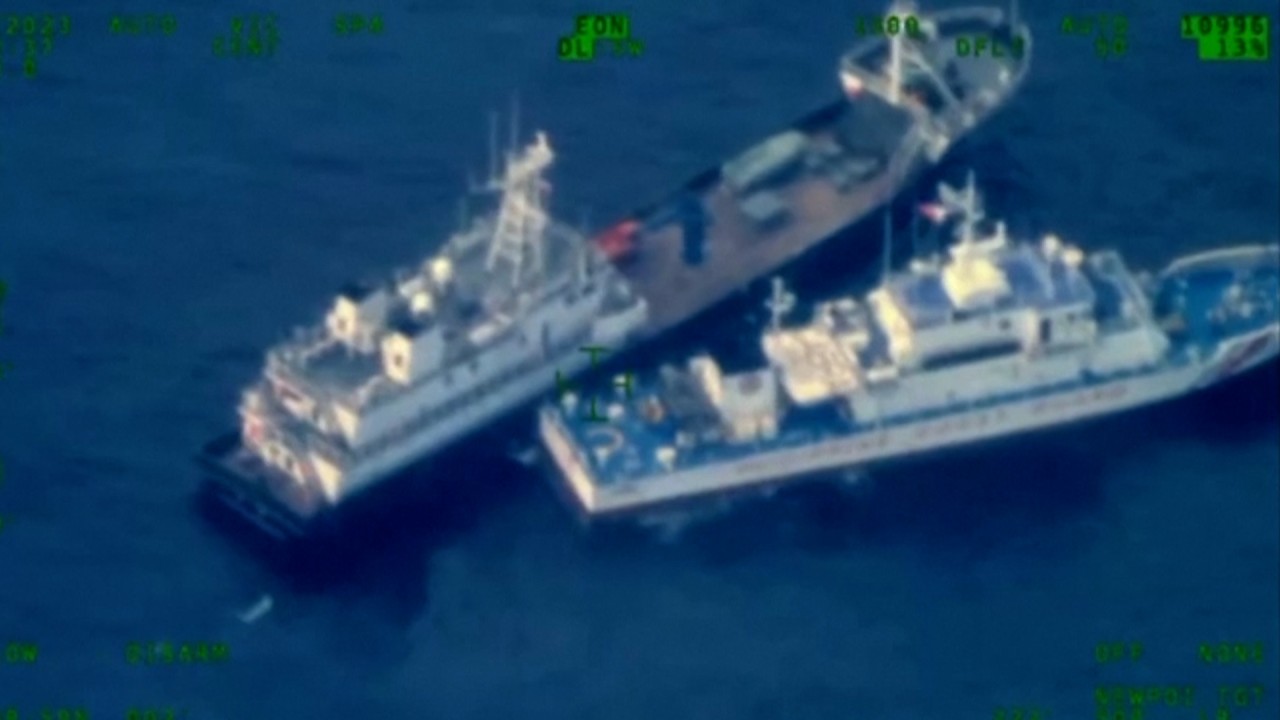
Beijing hits out at German Foreign Minister Annalena Baerbock’s ‘unwarranted’ attack on its actions in South China Sea dispute with Philippines
- Baerbock said during a visit to the Philippines that Beijing was violating Manila’s ‘rights and economic development opportunities’ in the disputed waters
- But China’s embassy in Manila said it was not to blame for recent clashes and said foreign countries should stay out of the dispute
China says ‘special arrangements’ allow Manila to supply Second Thomas Shoal
It also said: “No non-regional country has the right to interfere in the maritime disputes between China and the Philippines.”
The statement added that China should not be blamed for recent incidents and is “committed to properly handling disputes with the Philippines through dialogue and consultation with the aim of jointly maintaining peace and stability in the South China Sea”.
During Baerbock’s recent visit to the Philippines – the first by a German foreign minister in about a decade – she said China was threatening freedom of navigation in the disputed waters and the dispute was a matter of concern for Germany and other European countries.
In recent months there have been repeated face-offs between Chinese and Philippine ships in the South China Sea, including several collisions that each side blamed on the other.
There are concerns that the dispute could escalate further and draw in the United States. Manila has moved to strengthen military ties with its long-term ally in recent months, including more joint exercises.
At a press conference with her Philippine counterpart Enrique Manalo on Thursday, Baerbock said: “[China’s] risky manoeuvres violate the rights and economic development opportunities of your country and other neighbouring countries.
“For countries around the world, they call into question the freedom of the sea routes guaranteed under international law in an area through which a third of global maritime trade flows.”
Will Manila’s plans to build in South China Sea escalate tensions with Beijing?
On Saturday, the Chinese embassy said there was “never any issue” with freedom of navigation in the South China Sea and blamed “the deliberate intervention of external forces intending to sow discord among regional countries”.
Baerbock said it was “crystal clear” that China’s claims “are not covered by international law”.

“The so-called ‘rules-based international order’ is essentially a set of ‘house rules’ established by a few Western countries to contain and suppress other countries,” the embassy said.
“China does not accept or recognise it, and will never accept any claim or action based on the [ruling].”


